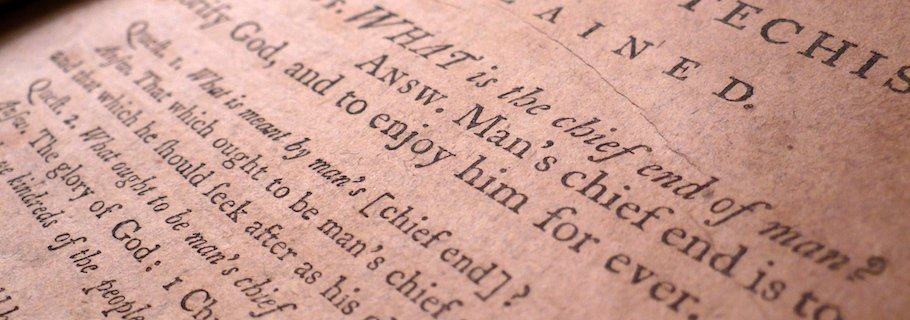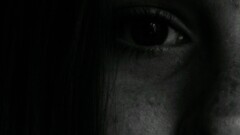This ongoing Reformed resurgence is an exciting, unexpected development. It has been a joy to watch people from all backgrounds, cultures, and nations discover and delight in those heart-stirring truths. Yet I think many have failed to take advantage of a resource that is theirs by virtue of their newfound theology.
Part of the joy of being Reformed is entering in to an existing, defined stream of theology. This gives us access to a thorough reference library that answers many questions and clarifies many conundrums. When we are uncertain about matters of faith or practice, it should be our habit to consult this library of creeds, confessions, and catechisms, for in it we learn what Reformed believers have long held to be true. By accessing this library, we appeal to the established, historic body of truth that forms the Reformed tradition. Of course, these resources are not equal in authority to the Bible and their purpose is to explain Scripture rather than to replace or overrule it. But still, they provide crucial wisdom and guidance.
In what follows I’ll show how appeals to this reference library can be tremendously helpful.
A Case Study: The Second Commandment
I recently wrote about the second commandment and its implications for films that portray God. I had found myself disquieted by presentations of God on the silver screen and determined I should consider what God says about representations of himself. I began with two questions: Is it wrong for human actors to portray God the Father and God the Holy Spirit? Furthermore, is it wrong for human actors to portray God the Son?
Because I am Protestant and hold to sola scriptura, I must insist that my answers are grounded in the Bible. But because I am Reformed Protestant, I do not need to stand alone with my Bible. Rather, I can appeal to my tradition to learn how others have answered similar questions in the past. I am not required to take their wisdom as fully authoritative, but it would be foolish and historically arrogant not to consult them and not to give great weight to their answers. Let me walk you through my process.
First Stop: The Bible
I began with the Bible, and especially with the second commandment: “You shall not make for yourself a carved image, or any likeness of anything that is in heaven above, or that is in the earth beneath, or that is the water under the earth. You shall not bow down to them or serve them, for I the LORD your God am a jealous God, visiting the iniquity of the fathers on the children to the third and the fourth generation of those who hate me, but showing steadfast love to thousands of those who love me and keep my commandments (Exodus 20:3-6; see also Deuteronomy 5:8-10).
A series of cross-references led to some other helpful texts: Exodus 33:20, Deuteronomy 4:12, Acts 17:29, 1 Timothy 1:17, and so on. These texts reaffirm that God is immaterial and invisible and that it is sinful to represent him by idols. They also affirm that God the Son took on a body. I found myself wondering whether images of God are forbidden only for purposes of worship or whether they are forbidden for all purposes. I also found myself wondering if we can portray Jesus as a human since he is not only a divine character, but also a historical, human one. I wondered how other Christians have thought about these matters. I was quite sure I would be able to find answers in the catechisms.
Second Stop: Westminster Shorter Catechism
The Westminster Shorter Catechism from the Presbyterian tradition is my favorite, so I typically turn there first. Here is what it says about the second commandment:
- Q. What is forbidden in the second commandment?
A. The second commandment forbids the worshipping of God by images, or any other way not appointed in his word. - Q. What are the reasons annexed to the second commandment?
A. The reasons annexed to the second commandment are, God’s sovereignty over us, his propriety in us, and the zeal he has for his own worship.
This brief catechism closely associates the making of images with their formal worship. On this basis, I know I must not make an image of God in order to worship that image, but I still lack clarity on whether I can watch God portrayed as a human character. Is it wrong for human actors to portray God? After consulting the Shorter Catechism (and the very similar Baptist Catechism of the Reformed Baptist tradition), I remain uncertain.
Third Stop: Westminster Larger Catechism
The Westminster Larger Catechism, as you may surmise, is much larger than the Shorter. It goes into greater detail and, in that way, offers greater clarity. Here is what it says:
- Q. What are the sins forbidden in the second commandment?
A. The sins forbidden in the second commandment are, all devising, counseling, commanding, using, and anywise approving, any religious worship not instated by God himself; tolerating a false religion; the making any representation of God, of all or of any of the three persons, either inwardly in our mind, or outwardly in any kind of image or likeness of any creature whatsoever; all worshipping of it, or God in it or by it; the making of any representation of feigned deities, and all worship of them, or service belonging to them, all superstitious devices, corrupting the worship of God, adding to it, or taking from it, whether invented and taken up of ourselves, or received by tradition from others, though under the title of antiquity, custom, devotion, good intent, or any other pretense whatsoever, simony, sacrilege; all neglect, contempt, hindering, and opposing the worship and ordinances which God hath appointed.
This clarifies a great deal. According to this catechism, it is wrong to make any representation of Father, Son, or Spirit for any purpose. It specifies that the commandment forbids representing God “in the image or likeness of any creature whatsoever,” which must include human beings. Thus the Larger Catechism clearly forbids representing Father, Son, and Holy Spirit on second-commandment grounds.
Fourth Stop: The Heidelberg Catechism
The Heidelberg Catechism from the Dutch Reformed tradition addresses the issue with equal clarity. Here are questions and answers 96, 97, and 98, as drawn from Lord’s Day 35:
- Q. What does God require in the second commandment?
A. We are not to make an image of God in any way, nor to worship him in any other manner than he has commanded in his Word. - Q. May we then not make any image at all?
A. God cannot and may not be visibly portrayed in any way. Creatures may be portrayed, but God forbids us to make or have any images of them in order to worship them or to serve God through them. - Q. But may images not be tolerated in the churches as “books for the laity?”
A. No, for we should not be wiser than God. He wants his people to be taught not by means of dumb images but by the living preaching of his Word.
This catechism separates the creation of images from the worshipping of those images. It forbids them both. It specifies that it is wrong to use images as a kind of teaching tool since God has decreed how he means for his people to be taught. Is it wrong for human actors to portray God? According to the Heidelberg Catechism, it is.
Making a Judgment
On the basis of the information I’ve collected, I can make this determination: According to the Reformed tradition, the Bible forbids portraying God in any form, whether for worship or as a teaching aid.
But I shouldn’t stop there. The catechisms include Scripture references for each statement they make, so I should follow those references back to the Bible to ensure the writers of the catechisms properly interpreted the passages. Having done that, I can conclude I am on firm ground and consistent with Reformed theology when I say it is wrong for human actors to portray God the Father, God the Son, and God the Holy Spirit. To reach a different conclusion would put me at odds with the established Reformed tradition.
What resources do we have available in this reference library? We have the historic creeds from the early church: The Apostle’s, Nicene, Athanasian, and so on. From the Presbyterian tradition we have the Westminster Shorter Catechism, the Westminster Larger Catechism, and the Westminster Confession. From the Reformed Baptist tradition we have the 1689 Baptist Confession of Faith and the Baptist Catechism. From the Dutch Reformed tradition we have the Heidelberg Catechism, the Canons of Dort, and the Belgic Confession.










